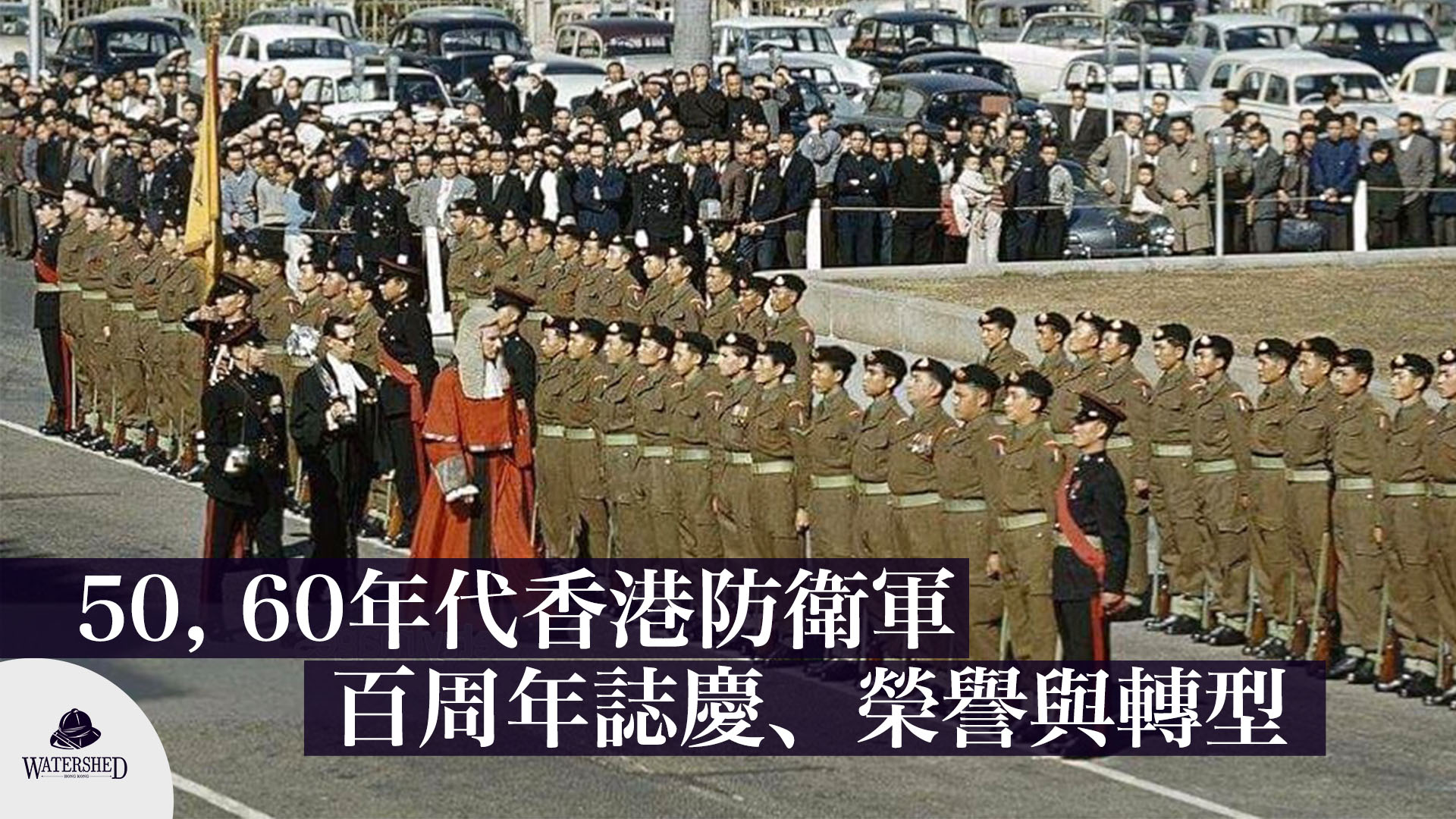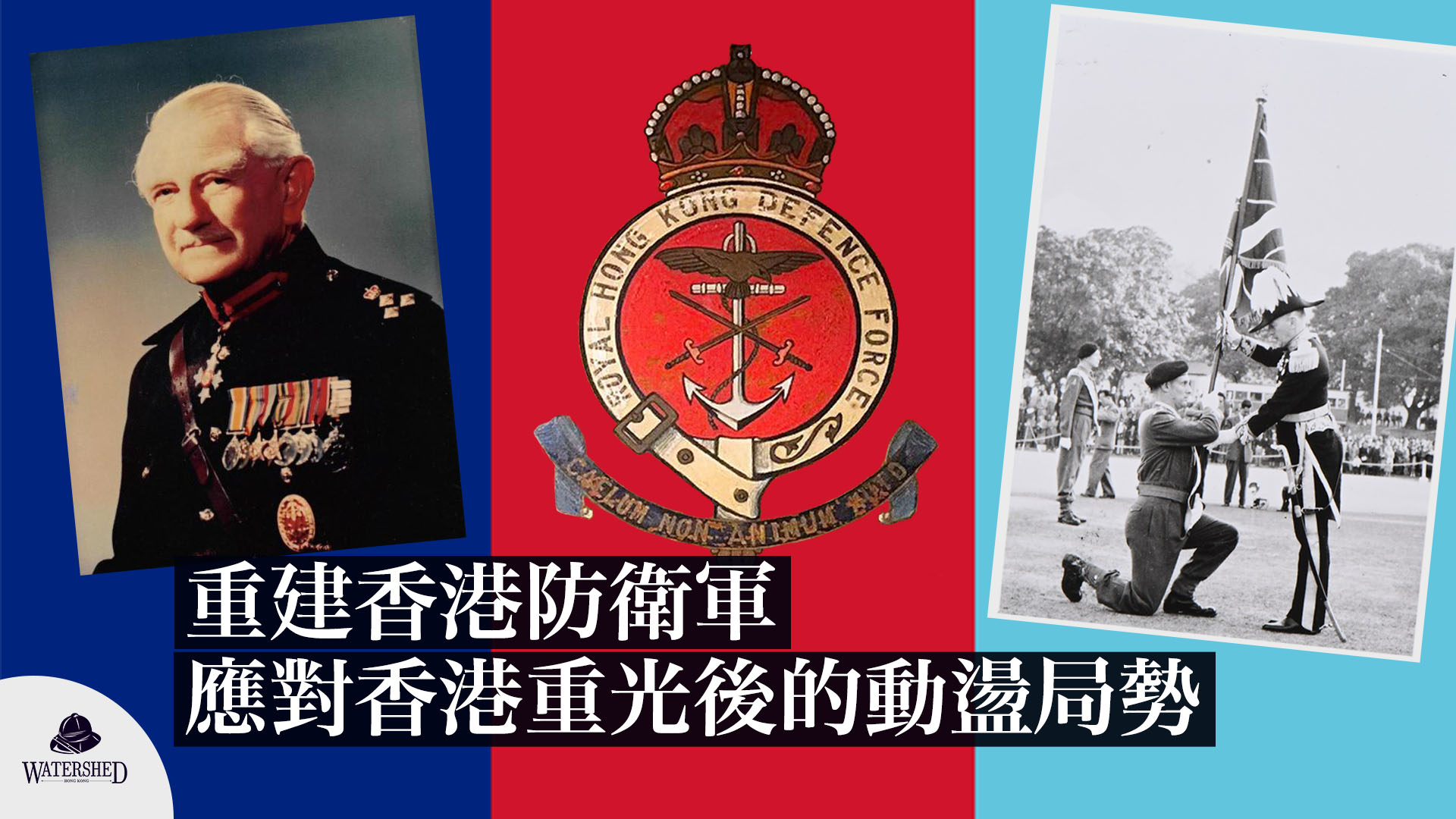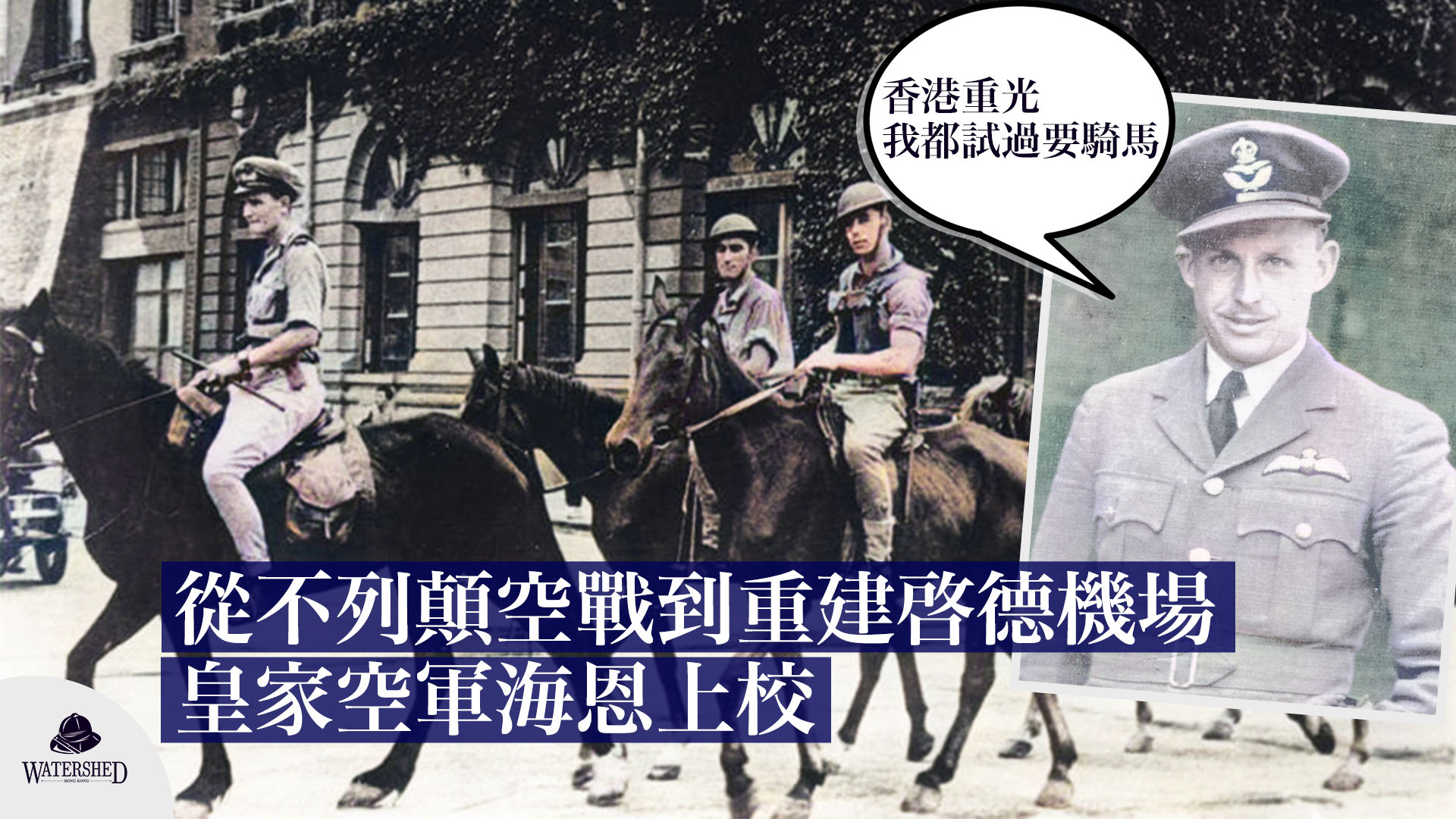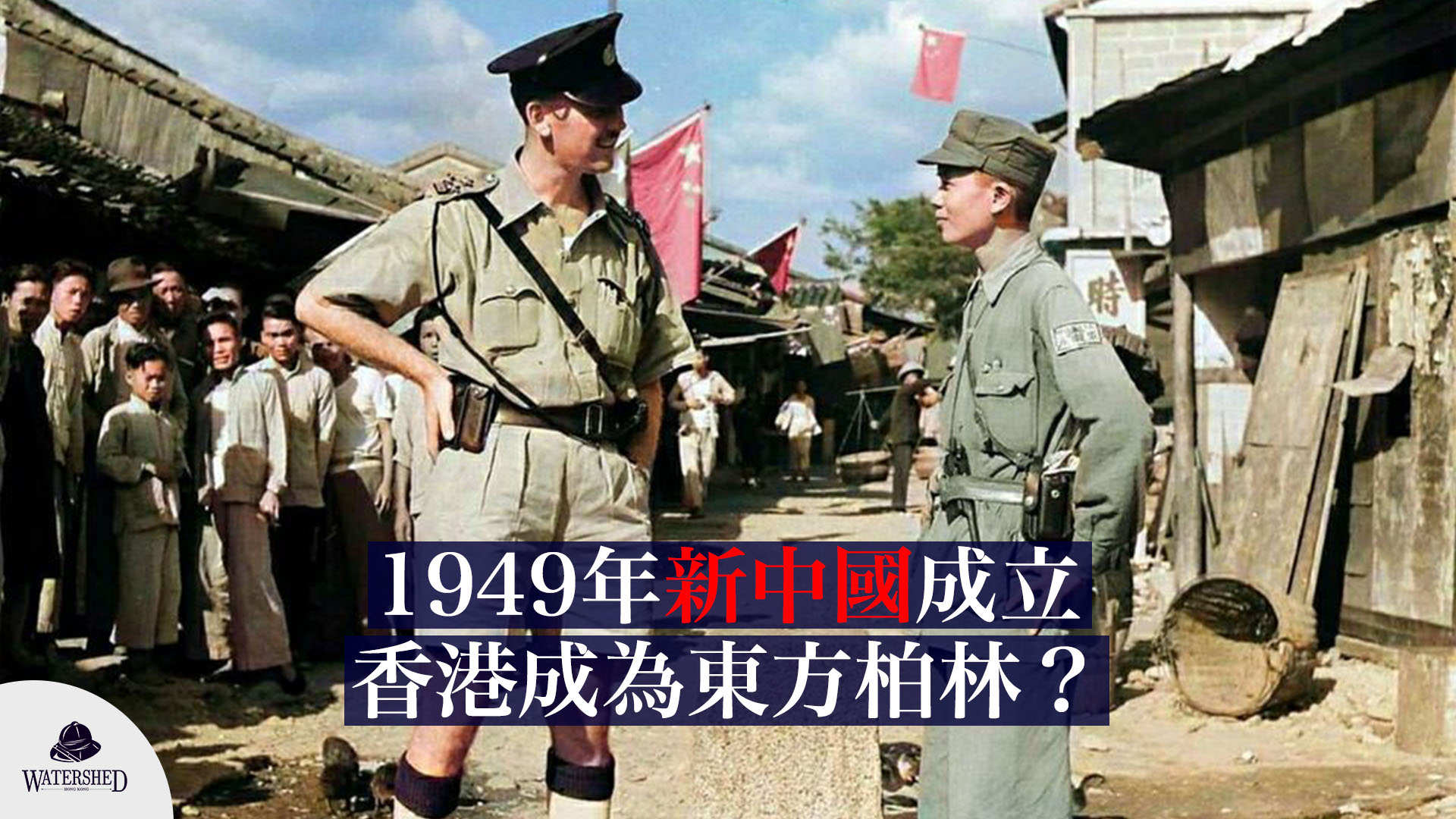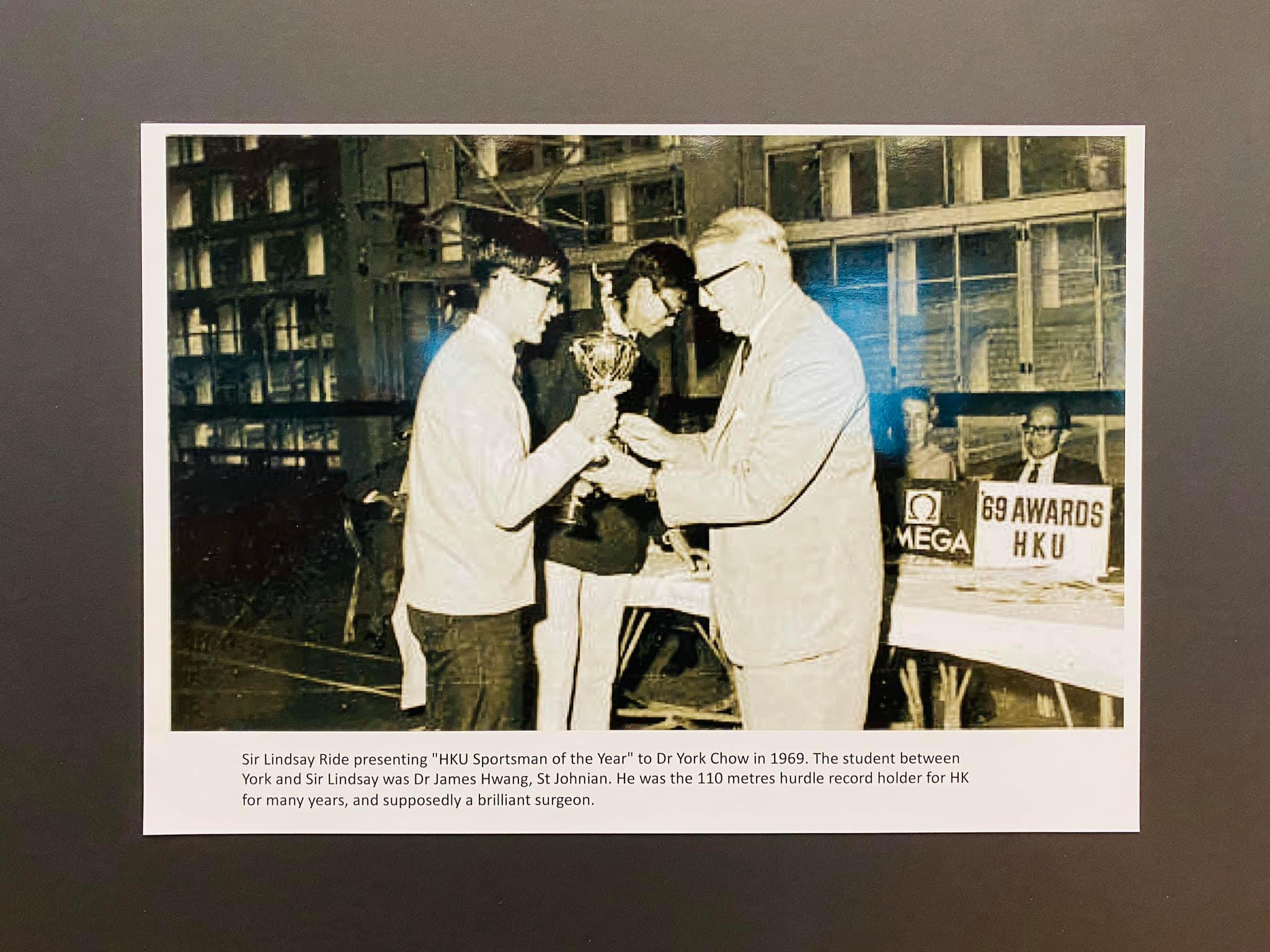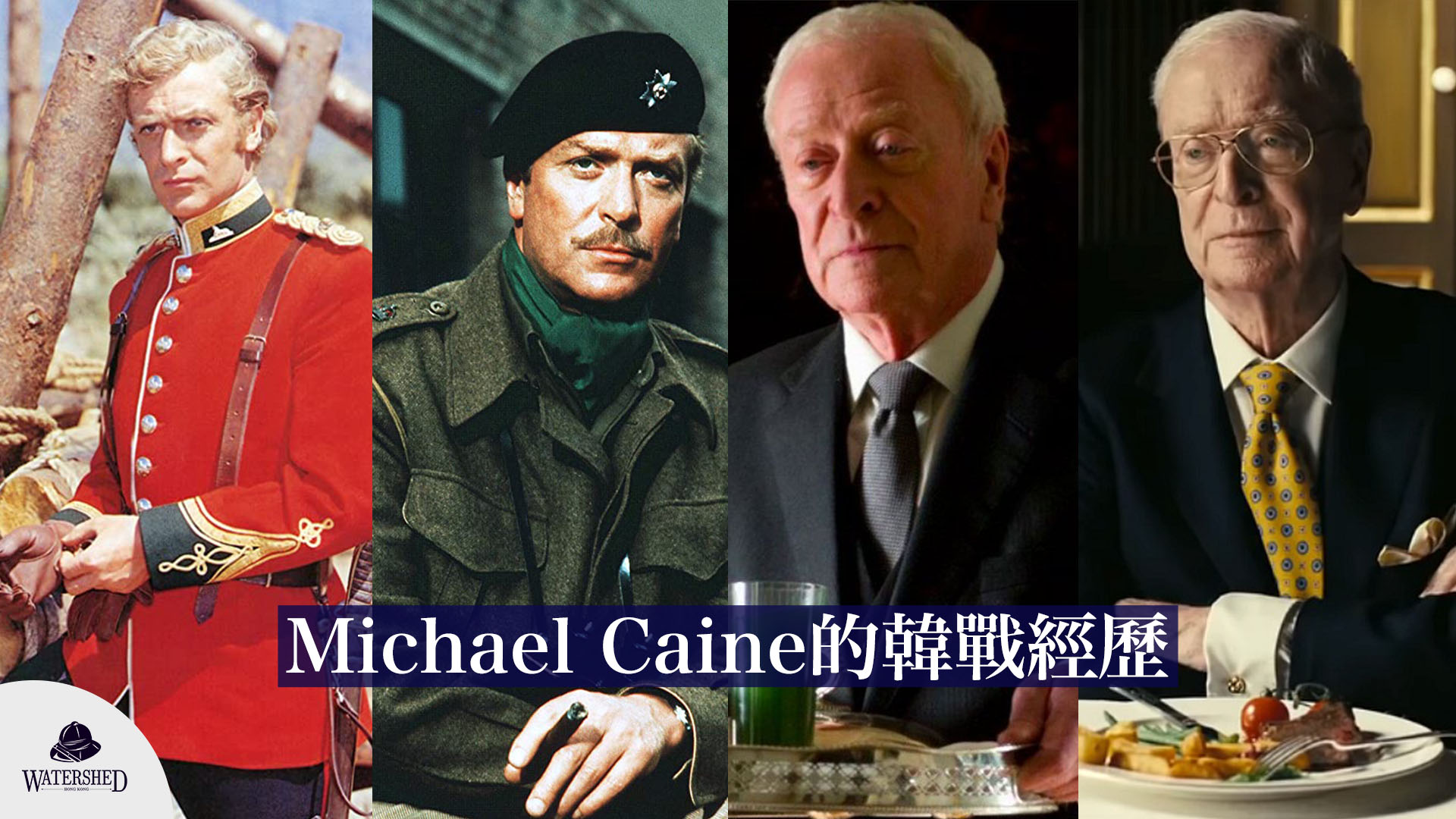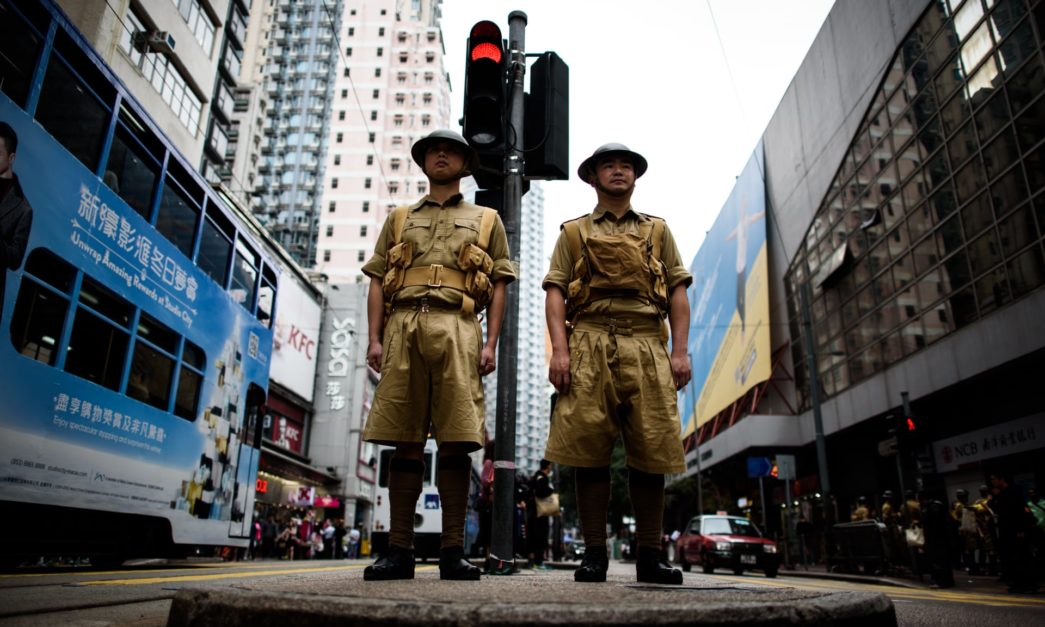
Watershed Hong Kong: Hong Kong, where history has become a battleground for Beijing – The Guardian
- On December 27, 2016
- 0
Date of publication: 27 Dec 2016
Link: Hong Kong, where history has become a battleground for Beijing
Hong Kong, where history has become a battleground for Beijing
Residents of the city are being encouraged to engage with their past – warts and all – and not allow it to be airbrushed
Stepping off the subway in his army uniform, Victor Yu prepared to face the onslaught ahead. Instead of charging into a crowd armed with rifles, he was met with smartphones, overwhelmed on a street in Hong Kong by pictures and selfies rather than enemy fire.
Yu is a member of Watershed, a local historical group working to raise awareness of what they feel is Hong Kong’s forgotten history. The performance comes at a time when instruction of the city’s history is becoming increasingly politicised, with recent government attempts to bury details that may be embarrassing for China.
About 20 volunteers dressed in period British military uniforms have been gathering on the streets of the city over the past month to mark the 75th anniversary of Black Christmas, when in 1941 British forces in Hong Kong surrendered to the Japanese, the first ever for a Crown colony.
“Most Hong Kongers don’t know anything about the battle to defend the city, they can only remember the Japanese occupation and think we gave up without a fight,” said Taurus Yip, 24, co-founder of the group. “All they know is the Japanese occupation was harsh and lasted for three years and eight months, that line is repeated over and over.”
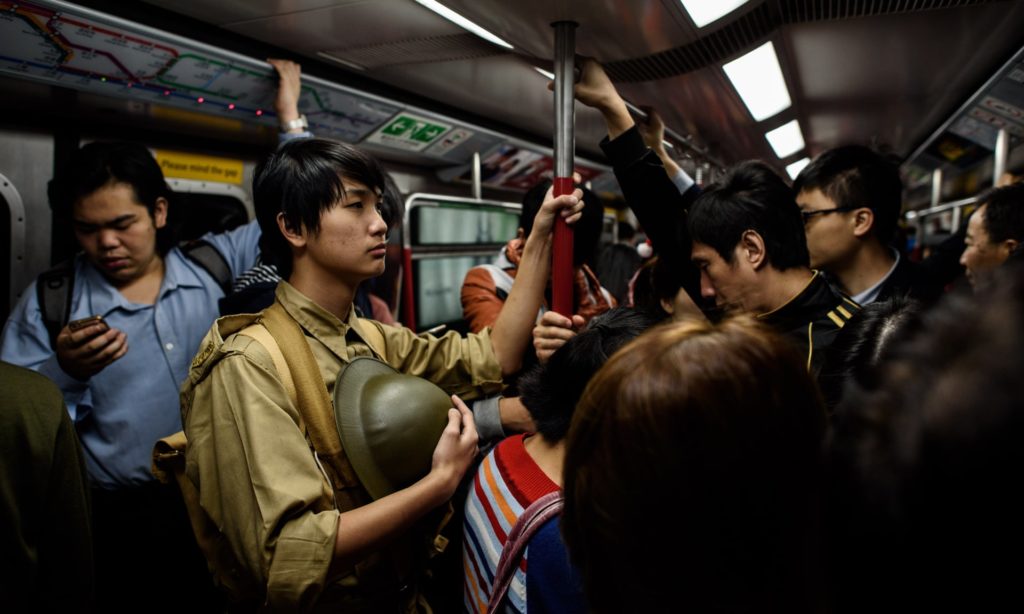
Photograph: Benjamin Haas/The Guardian
The event was inspired by a similar campaign in London last year, when uniformed actors handed out cards bearing the names of soldiers killed during the Battle of the Somme.
But beyond serving merely as a memorial, Hong Kong’s history buffs hope to foster a common identity in a city that has traditionally lacked a cohesive sense of self.
“Hong Kong people just want to get rich and emigrate because they don’t have a sense of citizenship about the place,” Kevin Ng, another organiser of the event, said in an interview. “What we’re trying to do is use history as a foundation, to show there were hundreds of Hong Kong people willing to die for their home, and then we can create a sense of belonging.”
History is increasingly a battleground for that sense of belonging, where the Chinese government hopes to instill patriotism while younger people identify with a Hong Kong identity that’s separate from China.
A proposed revision in September to the way history is taught, with the government saying “too much emphasis has been put on political history and not enough on society and culture”, was met with resistance from teachers who worry the move is designed to bolster patriotic education.
Introducing “national education” was beaten back in 2012, but the concept still remains a priority for Beijing.
At a public forum earlier this year on renovating Hong Kong’s history museum exhibits to tackle events beyond 1997, a chorus of seemingly organised, mostly elderly residents made demands that any expansion would promote a sense of belonging to the China and the Communist party, rather than a local, uniquely Hong Kong identity.
“Local history education is very political,” said Allan Pang, a member of the University of Hong Kong history society who has researched school curricula.
“The textbooks and syllabus try to sidestep so-called embarrassing issues like June 4th or the 1967 riots,” Pang added, referring to the date of the 1989 Tiananmen Square massacre, an event that spurred 1.5 million people, more than a quarter of the population at the time, to march in Hong Kong in the largest ever protest.
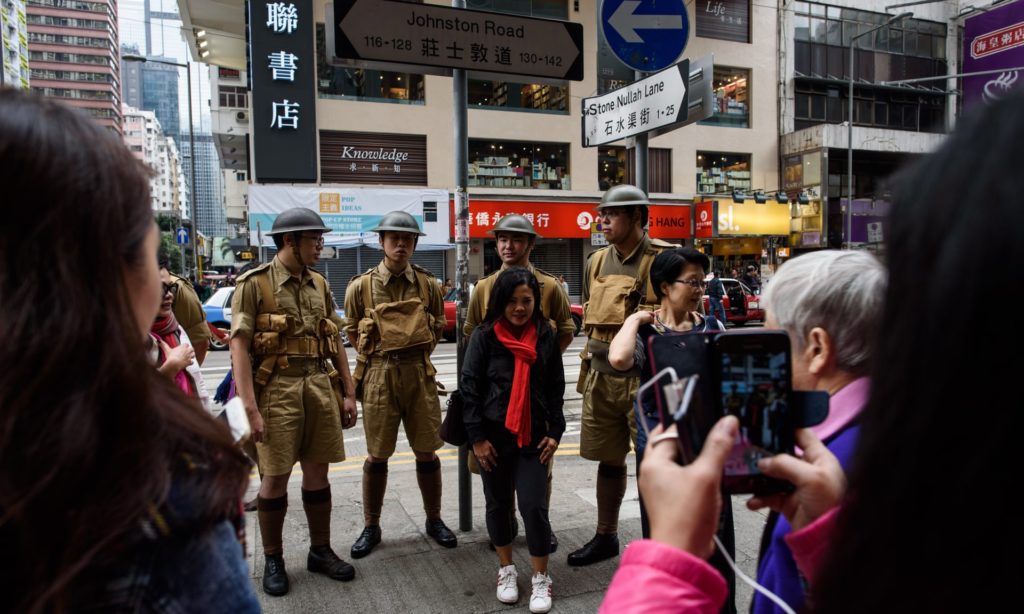
Photograph: Benjamin Haas/The Guardian
Last year the Hong Kong police revised the history section of their website to remove references to “leftists” and “Communists” as agitators and bomb makers during months of deadly rioting in 1967. The changes led to an outcry from historians and former police officers and the original text was eventually restored.
In another move that alarmed conservationists, Hong Kong’s post office unveiled a plan to cover royal cyphers found on colonial-era mailboxes to “avoid confusion”. But some saw a more sinister subtext as the decision came in the wake of comments made by a former Beijing official berated Hong Kong for its “failure at decolonisation”.
Britain handed Hong Kong to China in 1997 under a framework known as “one country, two systems” where the former colony was allowed to maintain its institutions and freedoms.
But in China’s push to hold sway over history education in Hong Kong can backfire. While teachers generally have free reign to interpret government-issued guidelines as they see fit, some schools are decidedly pro-Beijing.
Nathan Law became a student protest leader and the youngest ever pro-democracy lawmaker despite attending a school that echoed the Chinese government line on history and politics.
The day after Chinese democracy activist Liu Xiaobo won the Nobel Peace Prize in 2010, the president of Law’s school denounced Liu, saying he “didn’t respect China and colluded with hostile foreign forces”.
The Nobel committee made a mistake and the school president warned students not to support Liu or his ideas, Law said.
“In my history classes I didn’t learn anything about Hong Kong before 1997,” Law recalled.
“In class we never talked about the 4th of June, freedom or human rights, and instead put the focus on glorifying Chinese history.”
The school president’s attack on the Nobel laureate spurred Law to do his own research, eventually inspiring his democracy activism.
That free flow of information in Hong Kong ensures academic freedom, said Lui Tai-lok, a professor at The Education University of Hong Kong, since even if students are taught one point of view in the classroom, they are free to read other interpretations.
“I can’t see there ever being one single body that ensures there is one interpretation, one mode of delivery and one one way of telling students what to say,” Lui said.
But he warned against Hong Kong people becoming complacent: “If things go wrong we have to blame ourselves for not standing up.”

